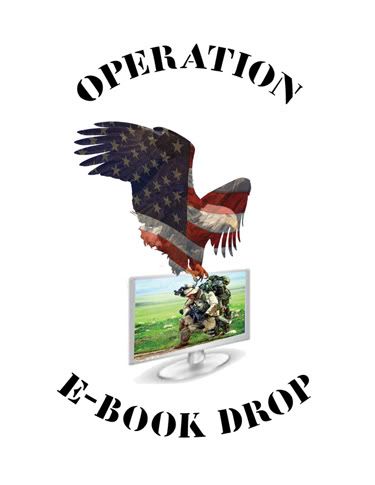This post, from literary agent Rachelle Gardner, originally appeared on her Rants & Ramblings On Life as a Literary Agent blog on 10/14/09 and it is reprinted here in its entirety with the permission granted on her blog. In it, she discusses publishing house Thomas Nelson’s decision to open a subsidy publishing arm under one of its pre-existing imprint names, WestBow Press.
As you all know, yesterday Thomas Nelson announced they are launching a new imprint, WestBow Press, which will operate as a subsidy publisher. Lots of people are talking about it and I thought I’d weigh in with a few thoughts.
*Please note, this is preliminary since I’ve only had a few hours to think about it. I’m sure I will have more to say, or my thinking may evolve, so I’ll keep you updated.*
There will probably be some criticisms of Nelson’s move, but looking at the big picture of publishing, I think WestBow Press is a step in the right direction (and by the way, Nelson isn’t the first or only publisher to add a subsidy division). The reality is that technology is making it easier and easier for writers to bypass the traditional pubs and get their own work published. More importantly, technology is increasingly allowing readers to bypass traditional pubs, too. With our Kindles (and other current and future e-readers), we can read anything from just about anyone. This means authors and readers can now connect with each other without the help of a middleman, a big publisher. This is a cataclysmic change in how authors find readers, and how readers find and read books.
Yes, we are at the beginning of this shift, but make no mistake, the trend is going to continue. Publishers need to embrace this shift and try to be a part of it; trying to fight it or stop it will ensure their slow deaths.
This is NOT to say that in the future, we won’t have the traditional publishers. But it’s naive to think the traditional pubs are going to stay as important as they are; they’ll certainly no longer monopolize publishing. In the future, they will be part of the landscape, but not the entire picture. If the traditional publishers want to stay relevant, they need to be taking steps to be a part of that future publishing landscape rather than digging their heels in. Serious competition will eventually come from self-publishing. Only those who embrace that fact are going to stay in the game.
We have only to look at what happened to the music industry to see that this is exactly the kind of step publishers should be taking. The big mistake the music business made was turning a blind eye on the fact that new technology was making it easier for artists to record and distribute their own music. They refused to try and be part of the new landscape and instead tried to fight against it. It was devastating for the industry, which has never recovered. They could have joined in and been part of the innovation and revolution; they could have had a piece of the pie. Instead they lost their shirts.
Having a self-publishing imprint might not be the best response to the changing publishing environment, just like the Kindle might not be the best e-reader. But in order for change to happen, companies have to take small steps out of the box. Like Seth Godin says, whatever is new isn’t immediately going to be better than the old. But give it time to keep evolving, and eventually it will be. The only way to get to something better is to step out and embrace the new. I think Nelson is trying to do this.
The Kindle and all the other e-readers are analogous to MP3s and iPods. With my iPod I can download a song and I don’t have a clue, nor do I care, if the song came from a big music company or not. I can get plenty of garage bands who independently put out their own records… and I love it. On Kindle, it’s the same thing but with books. Whole subcultures will start to grow made of fans of certain self-publishing authors, just like there are tribes of fans of artists and bands that have never been put out by a major label. In the long run, it serves not just the author but the consumer. And that’s why it’s a smart move to enter the self-pub business. If you want to make money, you’ve got to keep your eye on what the consumer wants.
What about distribution?
As a subsidy publisher, not technically a self publisher, WestBow will have "sales reps working to sell to Christian book buyers," according to their website. This means that unlike some forms of self-publishing, there’s some kind of distribution plan in place. Ostensibly the WestBow books could appear on shelves at Family Christian or Barnes & Noble. Pardon me if I let my skepticism show here, but c’mon. The bookstore buyers already say no to so many books publishers pitch. Aren’t they going to look at the subsidy books and say something like, "Are you kidding me?" I think the chances of those books actually having a very effective distribution channel are fairly slim. But of course I could be wrong, it’s happened before.
A note about the name "WestBow Press."
I have concerns about the name they chose for the imprint. As many of you know, back when Thomas Nelson had many imprints, WestBow was one of them. It was the fiction line, and it was very well known by the name WestBow. Many current authors still have books in print under the WestBow name, published as recently as mid-2008. To call a new self-publishing imprint by the same name as a former, well-known and highly respected fiction imprint (with extremely high quality standards) seems unfair to the authors who previously wrote for WestBow.
If you search Amazon for WestBow, you’ll find books by authors like Ted Dekker, Karen Kingsbury, and Colleen Coble. I wonder how these folks will feel about their books being on a shelf next to a self-pubbed title, both books with "WestBow" on the spine. It seems like it might fool unsuspecting consumers into thinking a WestBow book (of the the current self-published variety) is somehow of the same quality as a WestBow book of the past. This really surprises me, because I know the folks at Nelson to be of high integrity and character. I hope Mike Hyatt blogs about this. Even more, I hope Nelson changes the name of the subsidy division.
So how does this affect YOU?
I have a couple of notes for those of you who are right about now thinking self-pubbing with WestBow looks pretty good. In Mike Hyatt’s blog post, he gives a good list of situations in which self-publishing might be right for you. The list wasn’t meant to be exhaustive, of course, so there are a couple things that could be added. Such as:
→ Self publishing is right for you if you have several thousand dollars to invest in publishing your book, with no guarantee of a return. The packages at WestBow run from about a grand to more than six grand; realistically, even if you chose the less expensive package, you’re likely going to need at least $5,000 to $10,000 when you add in the cost of marketing.
→ The other thing that needs to be said is this: If you want people to read your book, then self or subsidy publishing only makes sense if you have a real, solid, honest-to-goodness way to market and sell your book. A large business or organization through which you can move copies; frequent speaking engagements; a high-traffic blog or website; a large church that you pastor. (What’s that? Sounds like a platform??? Say it isn’t so!) Think hard about this.
When is it not a good idea to consider self or subsidy publishing?
In the first place, let it be said that self-pubbing is usually only a viable business plan for non-fiction authors, not novelists. That’s just a general caveat. And by "business plan" I mean, of course, a plan with some potential to recoup the original investment and eventually make a profit.
My biggest caution would be to you authors, particularly fiction authors, who have been trying to get published for less than two or three years, and you’re getting impatient to get your books in print. Especially if you’ve been told your writing is good and getting better. For you, the process of traditional publishing may actually be working for you; i.e. encouraging you to continue improving your books until they become something really good that many people will read.
To self-pub out of impatience may be subverting this process and short-changing yourself of the experience of continuing to grow yourself as a writer. Besides, last I checked, impatience doesn’t bring with it a marketing plan. You may be impatient to publish, but if you do, you may end up with the same old problem: nobody’s reading your books. First, because they’re not good enough, or at least not as good as the competition. Second, because you have no way to sell them.
Okay, that’s all I’ve got for now. Questions? Comments? Bored out of your mind?
Please read the excellent discussion going on in the comments section following this post on Rachelle Gardner’s Rants & Ramblings On Life as a Literary Agent blog, which includes remarks from Thomas Nelson CEO Michael Hyatt. Also see this analysis from a very knowledgeable self-published author, Timothy Fish, and this response from literary agent Sandra Bishop.


 On Amazon.com
On Amazon.com  On Smashwords.com
On Smashwords.com  Seth started out like many unknown writers. He piled up so many rejection slips and unanswered submissions that finally he said to heck with it and decided to go directly to his audience.
Seth started out like many unknown writers. He piled up so many rejection slips and unanswered submissions that finally he said to heck with it and decided to go directly to his audience.
